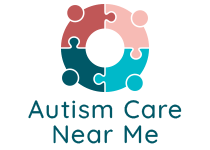Parents of children with autism spectrum disorder (ASD) face a lot of decisions when it comes to their child’s care, especially when it comes to therapy. One of the most popular treatments for children with autism is applied behavior analysis (ABA) therapy. However, it’s important to understand what ABA is and what it can help with before deciding whether or not it is the right option for your child. If you’re looking for applied behavior analysis in Maryland, knowing more about the therapy can help you make an informed decision.
What Is ABA Therapy?
Applied behavior analysis is an evidence-based therapy used to help children with autism develop social, communication, and behavioral skills. ABA therapy is based on the idea that behaviors are learned and can be modified or changed through positive reinforcement. The therapy typically involves one-on-one sessions with a trained therapist, who uses specific techniques to encourage positive behaviors. The goal of ABA therapy is to help children with autism achieve independence and success across all settings – at home, at school, and in the community.
Could ABA Therapy Help My Child?
If you’re considering ABA therapy programs in Maryland for your child, there are a few important things to consider. First, it’s important to ensure that the therapist you choose is trained and experienced in ABA therapy for children with autism. Additionally, you should consider your child’s age, developmental level, and individual needs when deciding if ABA therapy is the right choice. Finally, you should also consider your child’s willingness to participate in therapy, as success with ABA therapy is often dependent on a child’s willingness to engage with the therapist.
These questions can help you decide if ABA therapy is the right choice for your child:
- Does my child have difficulty communicating or socializing with others?
- Does my child struggle to focus or stay engaged in activities?
- Does my child engage in repetitive or self-stimulatory behaviors?
- Does my child have difficulty with adaptive skills (e.g., toileting, feeding, dressing)?
- Has my child been diagnosed with autism, or are they showing signs of autism?
If you answered yes to any of these questions, ABA therapy and family resources for autism could be beneficial.
What to Expect in ABA Therapy Sessions
ABA therapy sessions are typically one-on-one and may last anywhere from 20 to 40 hours per week, depending on your child’s individual needs. During the sessions, the therapist will work on specific behavioral goals with your child, such as improving social skills, increasing communication abilities, and reducing problem behaviors. The therapist may use a variety of techniques, including positive reinforcement, to encourage positive behaviors and discourage negative ones. Sessions may take place in your home, the therapist’s office, or your child’s school or daycare setting.
Reach Out to an ABA Therapy Provider near You Today
ABA therapy has helped many children with autism gain the skills they need to live happy, independent lives. However, it’s important for parents to carefully consider their child’s needs and individual circumstances before deciding if ABA therapy is the right choice. By asking the right questions and doing your research, you can make an informed decision about your child’s therapy needs. Remember, as a parent, you are your child’s biggest advocate—and with the right therapy and treatment, your child has the potential to thrive.







